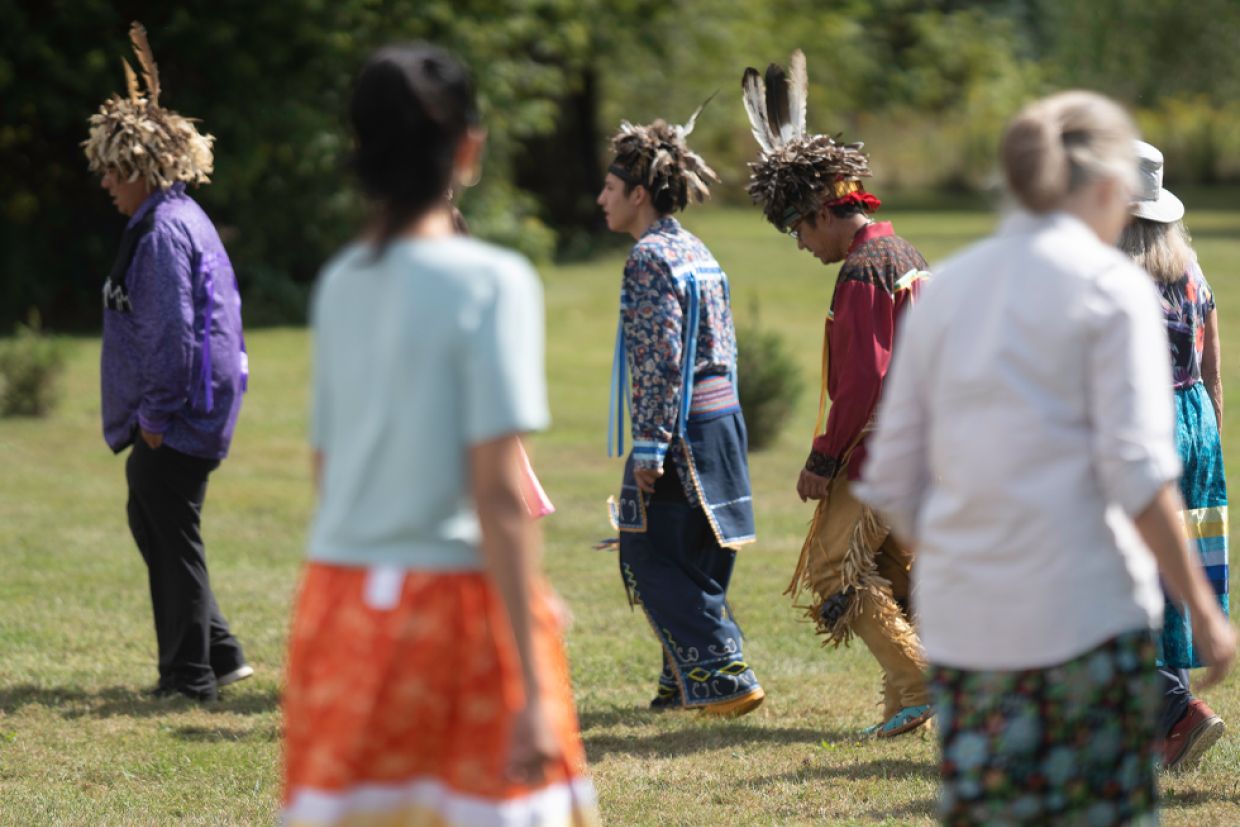Sept. 30 is National Day for Truth and Reconciliation and is dedicated to remembering victims and Survivors of Canada’s residential school system (1831-1996), and reflecting on the harmful impacts the system continues to have on Indigenous Peoples and communities.
Since 2022, Queen’s alumni have had the opportunity to take part in an immersive learning experience about residential schools and the impact of the schools on Survivors and their families.
The four-month program, A Mile in Their Shoes: Truth, Empathy, and Reconciliation, consists of module readings, an in-person gathering at Soul of the Mother healing lodge in Six Nations of the Grand River near Brantford, Ontario, and virtual discussions led by program facilitators. A Mile in Their Shoes aims to help alumni learn about residential schools, chart their personal reconciliation journey, and bring their learning forward personally and professionally.
A Mile in Their Shoes was developed by recently retired Queen’s Associate Vice-Principal (Indigenous Initiatives and Reconciliation) Kanonhsyonne (Janice Hill) and Ry Moran, Associate University Librarian – Reconciliation at the University of Victoria and the inaugural director of the National Centre for Truth and Reconciliation.
For the past two years, Dan Brant, a member of the Mohawks of the Bay of Quinte and the Matthews Fellow in Global Public Policy in the School of Policy Studies at Queen’s, has been the program facilitator.
The initiative is the result of true collaboration between the Office of Indigenous Initiatives, Office of Advancement, and TAP Resources, an Indigenous-owned event management and consulting group. It has also been supported financially by the Queen’s University Alumni Association and Manulife.
“A Mile in Their Shoes takes an approach outside of the typical ‘checkbox’ path to history and reconciliation,” says Amy Brant, Indigenous Training Lead, Office of Indigenous Initiatives.
Brant, who is from the Mohawk Nation at Kenhté:ke, highlights the curated and interactive components of the program and the opportunity to reconnect with the university’s evolution as valuable for alumni who may not have learned about the residential school system during their time as students. She also hopes participants will apply what they’ve learned in their personal and professional lives.
Jay Wright, Com’81, was searching for an immersive program to deepen his learning about residential schools and his relationship with reconciliation when he received an email from Queen’s inviting him to participate in the program.
Wright and his wife Susan established the Wright Family Award in 2021, which aims to increase the representation of Indigenous business leaders in corporate Canada by supporting Indigenous students in the Commerce program at Queen’s. He knew A Mile in Their Shoes was the opportunity he had been looking for to expand his understanding and fill in knowledge gaps from his time in school.
“The experience was exceptional,” says Wright, who took part in the program in 2023. “The pre-readings were quite relevant and eye-opening. It was like taking a course really. It was very immersive, but the day together was unforgettable. The most important thing I learned was how awful the residential school impact was on the very fabric and future of Indigenous life and culture, terribly impacting the very root of family life and the fabric of their societies.”
Taking part in A Mile in Their Shoes so soon after retirement helped guide the next chapter of Wright’s life. Informed by his experience in the course, he’s launched the Centre for Indigenous Corporate Partnership (CICP). Wright, along with founding partners Chief Clarence Louie, LLD’22, of the Osoyoos Indian Band, and Brad Baker, Managing Director & Partner at Boston Consulting Group, also drew inspiration from existing corporate-Indigenous partnerships and many Indigenous and corporate leaders who have helped guide the organization.
CICP facilitates and connects Indigenous community needs with corporate Canada's pro-bono capacity by supporting projects and experiences that accelerate economic development and reconciliation.
Corporate participants receive training and educational resources developed in partnership with Smith School of Business before their secondments with Indigenous partners.
CICP already has two active pilot projects underway. The first with Hiawatha First Nation came through a connection with Dakota Lavery, Com’20, who Wright and Baker met at the ceremony in which Chief Louis received a Queen’s honorary degree in 2022.
The project with Hiawatha First Nation includes developing a strategic plan to identify core economic engines and investment priorities and creating a roadmap to advance enablement and execution to bring the community’s Comprehensive Community Plan to life.
CICP’s pilot with Constance Lake First Nation in northeastern Ontario will support assessment of needs and health resource shortages, while facilitating connections to mental and physical health partners, to address the opioid crisis.
Like Wright, Lisa Hood, Artsci’04, was deeply impacted by the immersive experience when she participated in 2022.
“I leapt at the chance to participate in the inaugural program. Queen’s gave me an education and I continue to rely on Queen’s to continue that education. This felt like a natural opportunity to further that learning with an organization that I trusted to have planned it appropriately. I know that when I have immersive experiences, the experiential component deepens my own learning.”
Among the many things that stayed with her from the program was the difference between a sacred land acknowledgement delivered by an Elder on their land and territorial acknowledgements delivered in the workplace by non-Indigenous people.
“When I am asked to deliver an acknowledgement at the start of a meeting or an event,” says Hood, “I have the awareness and the mindfulness of the difference between a land and territorial acknowledgement and that has changed what I share and how I share it.”
For Hood, some of the most profound learnings from the program were the most personal. As a parent of young children, Hood felt better equipped to talk to them about residential schools and their impact after participating in A Mile in Their Shoes.
“I have little kids, and this is empowering me to teach them differently,” Hood notes. “Their school is teaching them differently than the schools that I attended as a little kid. So that's started for them, and I'm heartened by it.”
The 2024 edition of A Mile in Their Shoes is currently underway, with participants experiencing the in-person component earlier in September. The task for program organizers now is how to share the program with as many people as possible as reconciliation is an ongoing process.
“The concept of reconciliation work is confusing and non-specific,” says Mika Henry, Acting Associate Director, Office of Indigenous Initiatives.
Henry, who is from Kenhté:ke (Tyendinaga Mohawk Territory), notes non-Indigenous people often wonder what role they can play in reconciliation. “Participation in the program allows them to see a path forward by learning from the past,” says Henry.
For both Wright and Hood, continuing their learning journey beyond the program is key. While A Mile in Their Shoes provides excellent resources to participants, the Office of Indigenous Initiatives also shares resources for those looking to continue their learning.
“The more I learn about it,” says Hood, “the more comfortable I also feel in saying, ‘I don't know’ and ‘I have to learn that still’ or ‘I think I probably know where I can find the answer.’ That's been a confidence boost in addressing these issues, thinking about residential schools, and talking to my kids about them. It makes us a little more comfortable, I think, when we feel knowledgeable.”


